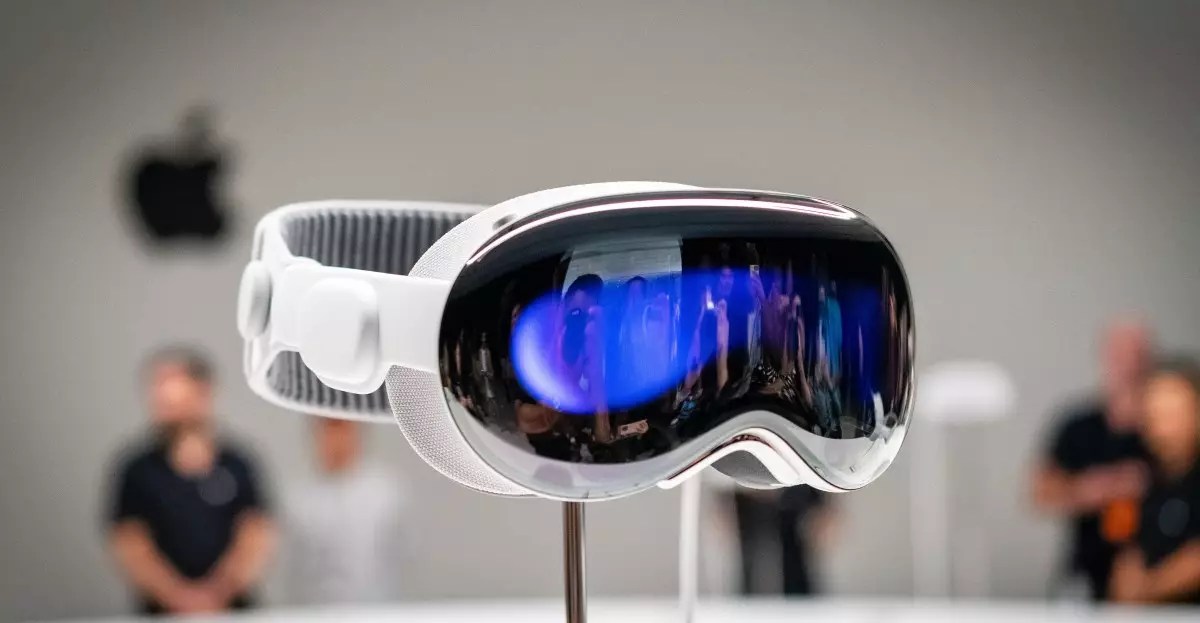In the fiercely competitive world of technology, the temptation for employees to surreptitiously download proprietary information before switching allegiances can be overwhelming. This case exemplifies the enormous costs companies bear when talented individuals breach trust, risking years of research and innovation. The recent lawsuit filed by Apple against a former employee highlights the case’s gravity—an incident that underscores the importance of safeguarding intellectual assets amid relentless corporate rivalry.
The incident involves a senior design engineer, accused of downloading thousands of confidential documents related to the innovative Vision Pro headset before leaving for a competitor, Snap. Such actions threaten not only the competitive advantage of a company but also cast a long shadow over industry ethics and corporate security protocols. When employees violate confidentiality agreements, it often reflects underlying issues: whether it’s dissatisfaction, perceived undervaluation, or simply greed. However, regardless of motive, the fallout is significant, risking legal actions, financial penalties, and lasting damage to a company’s reputation.
The Complexity of Corporate Security and Employee Trust
This incident reveals how technical vulnerabilities and lapses in security measures can be exploited. Despite employing standard protocols to restrict access once an employee resigns, the accused intentionally delayed this process, enabling him to copy sensitive data. This highlights a troubling reality: even the most robust security systems can be circumvented when individuals intentionally plan their misconduct.
Moreover, Apple’s case exposes the delicate balance in managing employee trust. Companies invest heavily in talent, yet the risk of intellectual theft remains an inherent lurking threat. It raises critical questions about how organizations can better monitor, detect, and prevent such breaches without infringing on employee rights or fostering an environment of distrust. The act of an employee selectively copying files, reorganizing, and deleting evidence shows a deliberate effort to conceal misconduct, implying a calculated strategy to exploit systemic vulnerabilities.
The Ethical Implications and Industry Impact
Beyond the legal ramifications, this saga raises ethical concerns about loyalty, integrity, and the true cost of innovation. When talented engineers or designers cross ethical boundaries, they jeopardize not just their careers but also the broader industry ecosystem, where innovation hinges on trust and confidentiality. The act of misappropriating research for a competitor damages the spirit of fair competition and could stifle the collaborative progress that benefits consumers.
Furthermore, this lawsuit advocates for a broader discussion about intellectual property rights. Companies are rightfully defending their investments, but they must also consider how to foster a culture of ethical responsibility. Implementing more sophisticated data tracking, fostering transparent communication channels, and offering incentives for loyalty might better discourage employees from resorting to theft to advance their careers elsewhere.
Legal Warfare and Industry Lessons
The legal front in this case illustrates how high-stakes corporate espionage has become a battleground for tech giants. Apple’s aggressive stance—filing a lawsuit to recover stolen documents and seeking damages—serves as a warning to other organizations. Such legal actions demonstrate that proprietary information is not just stored data but a core element of competitive advantage worth fighting for.
Interestingly, Snap’s denial of involvement indicates an attempt to dissociate from any misconduct, but the allegations serve as a reminder that in an interconnected industry landscape, swift legal retaliation can serve as a deterrent. Companies should take these incidents seriously, reinforcing internal policies and legal measures to prevent future breaches. The ongoing series of lawsuits against former employees signals a trend: intellectual property theft is increasingly viewed as a critical threat that must be aggressively litigated.
The broader lesson is clear—innovation is fragile, and without rigorous protective measures, even the most promising technological advances risk being compromised. For the tech industry, balancing trust with vigilance remains a perpetual challenge—one that ultimately involves not just technology but also cultivating a corporate culture rooted in integrity and respect for intellectual property rights.

